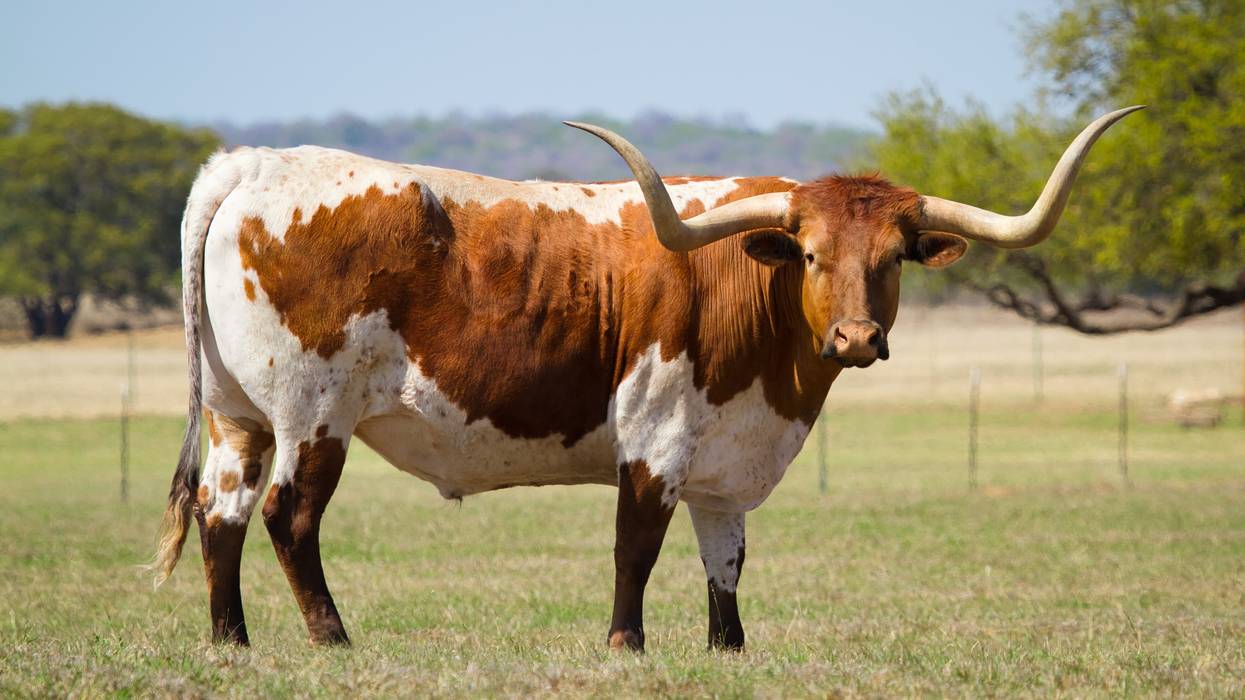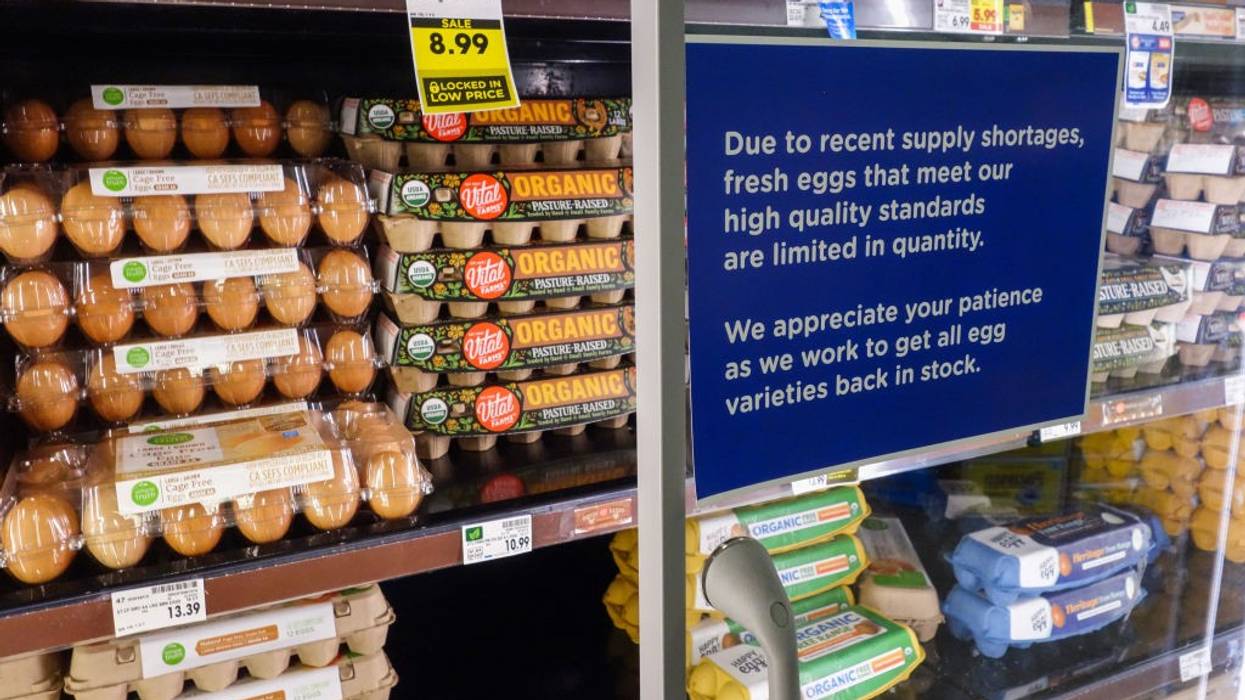'Illegal, Immoral, and Absolutely Cruel': Trump Says He'll Defy Court Order on SNAP Payments
“If Trump had any shred of humanity in him, he would do whatever was necessary to prevent hunger and suffering in the country he claims to love," said one critic.
In apparent open defiance of two federal court rulings, President Donald Trump said Tuesday that his administration will not fund a key federal nutritional aid program until after the Republican government shutdown ends, leaving millions of families even more vulnerable to hunger at a time of crisis-level food insecurity.
In a post on his TruthSocial network, Trump took aim at both the Supplemental Nutrition Assistance Program (SNAP) and the administration of former President Joe Biden.
"SNAP BENEFITS, which increased by Billions and Billions of Dollars (MANY FOLD!) during Crooked Joe Biden’s disastrous term in office (Due to the fact that they were haphazardly 'handed' to anyone for the asking, as opposed to just those in need, which is the purpose of SNAP!), will be given only when the Radical Left Democrats open up government, which they can easily do, and not before!" the president wrote. "Thank you for your attention to this matter."
"Trump's message to 42 million Americans: Eat dirt."
Responding to the president's post, Sen. Elizabeth Warren (D-Mass.) wrote on social media, "After a judge ordered Donald Trump to make SNAP payments, the wannabe king declared he will defy a court order and won't help people afford groceries."
"Trump's message to 42 million Americans: Eat dirt," she added.
Trump is now saying he will only pay SNAP benefits once the Republican shutdown is over, despite a federal court order.As a result, 42 million kids, seniors, veterans, and people with disabilities could go hungry. This is illegal, immoral, and absolutely cruel.
[image or embed]
— Rep. Ted Lieu (@reptedlieu.bsky.social) November 4, 2025 at 8:49 AM
Seemingly contradicting Trump's claim, the White House said later Tuesday that the administration is complying with one of the court orders.
Data from the nonpartisan US Government Accountability Office have shown that approximately 70% or more of working-age, non-disabled adults receiving Medicaid and SNAP benefits work full-time—defined as 35 hours or more per week.
On Friday, federal judges in Massachusetts and Rhode Island ruled against the US Department of Agriculture’s refusal to pay at least part of the $8 billion in SNAP benefits—also known as food stamps—to rightful beneficiaries in November via a contingency fund established by Congress.
The administration responded to the rulings by saying it would only fund around 50% of the total monthly benefits, while warning of likely payment delays.
Plaintiffs in the Rhode Island case—represented by Democracy Forward and the Lawyers’ Committee for Rhode Island—subsequently filed an emergency request seeking a court order compelling Trump and his administration to comply with Friday's order.
“The Trump-Vance administration continues to play politics with people’s lives through failing to ensure SNAP payments are expeditiously available," Democracy Forward president and CEO Skye Perryman said in a statement Tuesday. "This is immoral and unlawful."
"The political posturing should stop now," Perryman added. "The administration needs to fully fund SNAP benefits so people can eat, today. We should not need to go to court to force the administration to provide food all people are entitled to in this country, but here we are—back in court to demand that the administration acts consistent with the judge’s order."
Alejandra Gomez, executive director of Living United for Change in Arizona (LUCHA), said ahead of a planned Tuesday press conference: “It took two court orders and mounting public pressure for the Trump administration to fund SNAP assistance partially, which is not good enough. Arizona families in need deserve better."
“December SNAP benefits are not guaranteed, and every day that Congress fails to act, children will go hungry, food banks run dry, and working families will pay the price," she added. "It is time to end the shutdown, fund healthcare and SNAP.”
Now in its 35th day, the ongoing federal government shutdown is tied for the longest in US history. Vulnerable people—already reeling from record cuts to social programs to pay for tax breaks for billionaires and corporations under the so-called One Big Beautiful Bill Act signed by Trump in July—are feeling even more pain, at a time when more than 47 million Americans, including 1 in 5 children, are living in food insecure households.
"I did not receive any benefits at all... And they said there is no promise of even getting any type of benefits for November," Danielle Rodriguez, a single mother in Pennsylvania who lost $400 in monthly SNAP aid, told MSNBC's Ana Cabrera Monday.
"'Mommy, do you want my piggybank money to help with groceries?'"
"Unfortunately, I've had to reach out to my utility companies and stuff like that to go on payments to use some of my bill money to buy groceries for me and my kids," she continued.
"It's very stressful being a single mom of two kids. I have a 9-year-old, and she is offering her piggybank money," Rodriguez added. "And she's like, 'Mommy, do you want my piggybank money to help with groceries?' And it's sad to hear my child say that to me because I'm mom—I'm supposed to do everything. I'm supposed to be their protector."
Mitch Jones, managing director of policy and litigation at Food & Water Watch, said in a statement: “At a time when rampant corporate consolidation has driven grocery prices sky-high, Trump continues to choose cruelty over the rule of law. He must abide by recent court orders and immediately release SNAP aid to the millions of low-income American families suddenly hanging on the precipice of an unconscionable hunger crisis."
“If Trump had any shred of humanity in him, he would do whatever was necessary to prevent hunger and suffering in the country he claims to love," Jones added.
Update: This piece has been updated with the White House's statement of compliance with one of the court orders.


